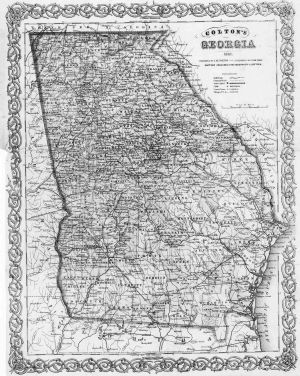 Hundreds of Baptist congregations in the South hold monthly business meetings this weekend. August business meetings typically include electing delegates to upcoming associational meetings (typically held in September, but sometimes in August or October) and receiving new members (often individuals converted during August revival meetings). Other standard business includes letters of dismissal, as well as discipline cases.
Hundreds of Baptist congregations in the South hold monthly business meetings this weekend. August business meetings typically include electing delegates to upcoming associational meetings (typically held in September, but sometimes in August or October) and receiving new members (often individuals converted during August revival meetings). Other standard business includes letters of dismissal, as well as discipline cases.
Of the latter, the Sandy Creek Baptist Church in Morgan County, Georgia appoints a committee to investigate a “servant” woman charged with “stealing.” Appointing a committee to investigate discipline charges is standard procedure, whether the charge is against white or black, male or female members. White men only (or in almost all cases) comprise committees. Typically, several months pass before any decision is reached by the committee and the church at large. The time lag is due to business meetings taking place only once a month, the standard practice of contacting the accused and allowing him or her to respond to the charges (sometimes this alone may take several months), and the give and take that sometimes takes place between the committee, the accuser, and the accused. Now, with the war underway, white Baptist members are keeping an even closer eye on slave members, who in reality have less sway in defending themselves – when accused of a matter – than do whites.
In the case of the servant charged with stealing in the Sandy Creek congregation, the case drags on for the rest of the year. Finally, on December 21, the church (or more likely, the white male members) votes to exclude (revoke the membership of) the servant woman accused of stealing. The conversations that transpired between this weekend and December 21 are not recorded, but the deck was stacked against the accused from the beginning.
Meanwhile, the New Bethel Baptist Church of Washington County, Georgia this weekend votes to grant “vigulens committee the use of the meeting house.” No other detail are provided in church records, but southern vigilance committees of this era are comprised of local citizens and tasked with utilizing extralegal means to control or intimidate slaves (and free blacks) and/or to suppress Union sentiment.
Evidencing less partisan rhetoric but just as concerned with the war is the Bethel Baptist Church of Kentucky:
“It was moved and carried that in view of the calamitous affairs of our country that this church observe next Saturday and Sunday as a season of fasting and prayers to the Lord, that he would avert the horrors of civil war and bloodshed from our land, and again restore peace and quiet to the country.”
Numerous other churches in the South also reference the war this month and vote to hold days of fasting and prayer. Rarely in 19th century America do politics and national affairs enter into the minutes of Baptist congregations, with the exception of the Civil War years.
Sources: Minutes of the Sandy Creek and New Bethel congregations (copies available in the Special Collections of Mercer University’s Jack Tarver Library, Macon, Georgia); Minutes, Bethel Baptist Church (link)


